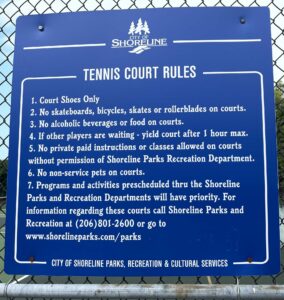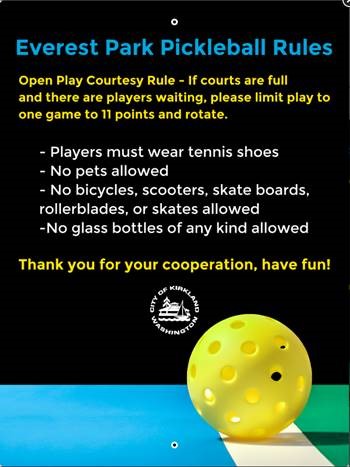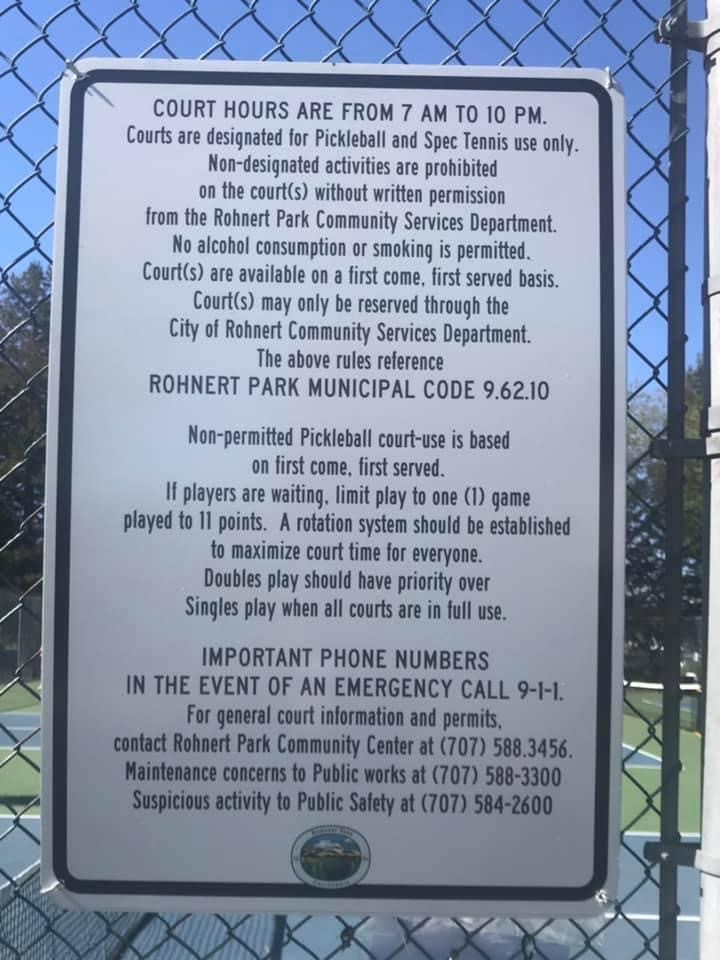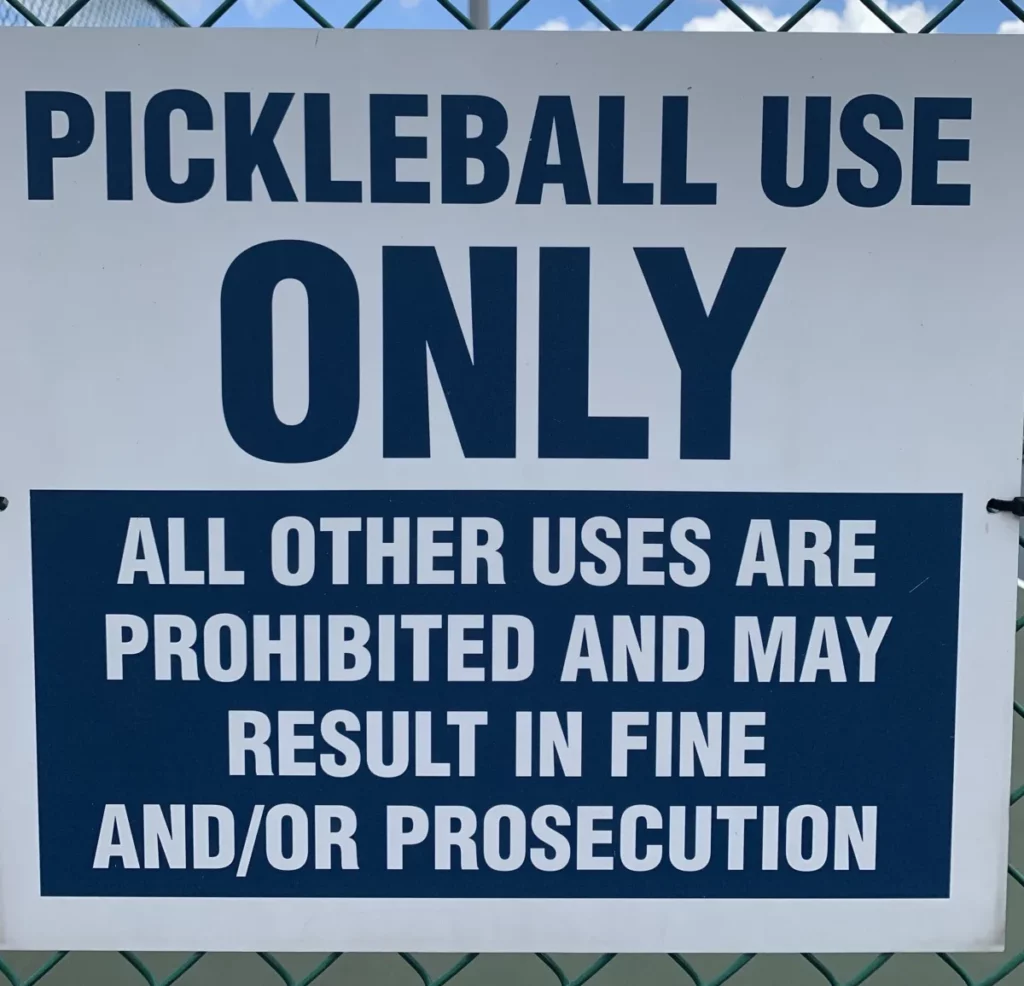Treat others with respect
Treat others with respect. This is part of the Seattle Metro Pickleball Association’s Code of Conduct that all members must agree to before joining the association.
Respect the local rules
Most locations have posted rules. Respect them.
For instance, if a rule says that players can continuously occupy a court for an hour, do not attempt to force them to leave their court in the name of open play.


Respect local open play protocols
Be flexible. If you join open play at a particular location, find out the local play protocols and abide by them. If people are playing games to 9 when the courts are overflowing with players, then play to 9. If people are using rally scoring, then use rally scoring. If people want winners to stay on the court, let the winners stay on the court. If people want all players to rotate out after every game, do so.
If the local customs don’t suit you, try to change them by consensus, or find another play time or location with protocols that more closely match what you are looking for.


Walk a mile in their shoes
Don’t assume that someone who sees the world differently than you is wrong, boneheaded, stupid and doesn’t like you. Your way is not the only way.
Open play is not the only way
A lot of people get introduced to pickleball via open play: they show up at a location where people rotate in and out of the courts at the end of each game. Naturally, they tend to assume at first that all pickleball play is open play. That is not the case.
Even if I and a hundred of my closest friends converge on a specific location at a specific time with the intention of sharing those courts by rotating in and out of them after each game, we might not have any more rights to access those courts than people who want to have closed (private) play and occupy a court for an hour. It all depends on the local rules, and these rules are not always clear.
There are very few courts in the greater Seattle area that have a rule that requires open play at all times. There are a few courts that require open play at specific times as part of pickleball programs sanctioned by local parks departments.
Just in case you wonder, there are a lot of reasons why people might want to take part in closed play instead of open play. A group of close friends might want to play together for an hour. A family with young children might want to play together as a family. Players might want to practice for a tournament with and against specific partners. Coaches might want to teach lessons. You might want to work on specific drills with a partner. Don’t assume that you can freely join any and all pickleball games. Ask nicely. Don’t take rejection personally.


Closed play is often the rule of the land
A lot of the dual tennis/pickleball courts in the Seattle area have rules that favor closed play over open play.
Traditionally, tennis has been played on public courts by having two or four people agree to meet on a court to play a game for 60 to 90 minutes. The tennis court usage rules have been written to make this easy: They often allow games to last for 60 to 90 minutes before players need to cede the court to the next group.
These rules designed for tennis do not easily accommodate pickleball open play, where dozens of players share the same few courts and come and go at different times. Parks Departments are slowly adapting to the demand for more pickleball open play. If you want more sanctioned open play opportunities, make sure that you let your local government know about it regularly.


Respect court reservations
People sometimes assume that public pickleball courts are open to everyone at all times.
Be aware that some Parks Departments allow for court reservations.
If some players have a reservation, let them be. If you think your Parks Department should not allow reservations, that is an issue you should raise with your Parks Department.


In summary
You might disagree with some of the points above, and that is perfectly ok. Having many different perspectives will help make the pickleball world a better place for everyone as long as we treat each other with respect.

